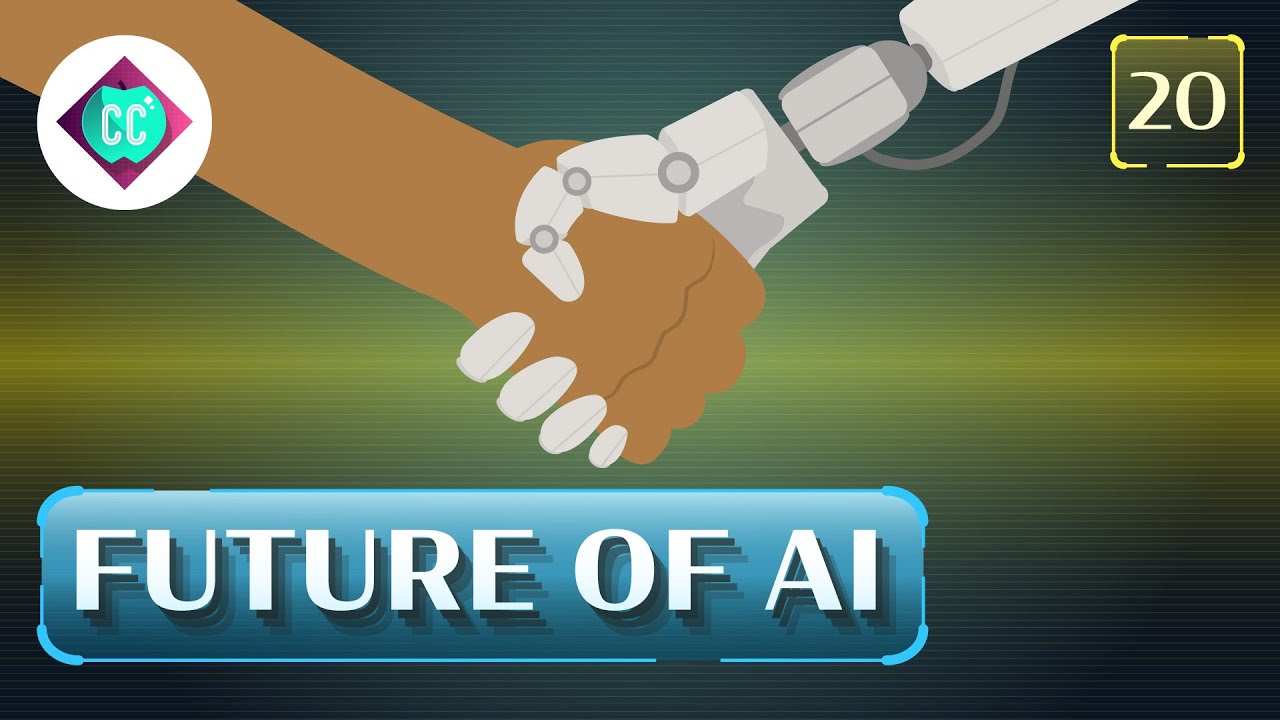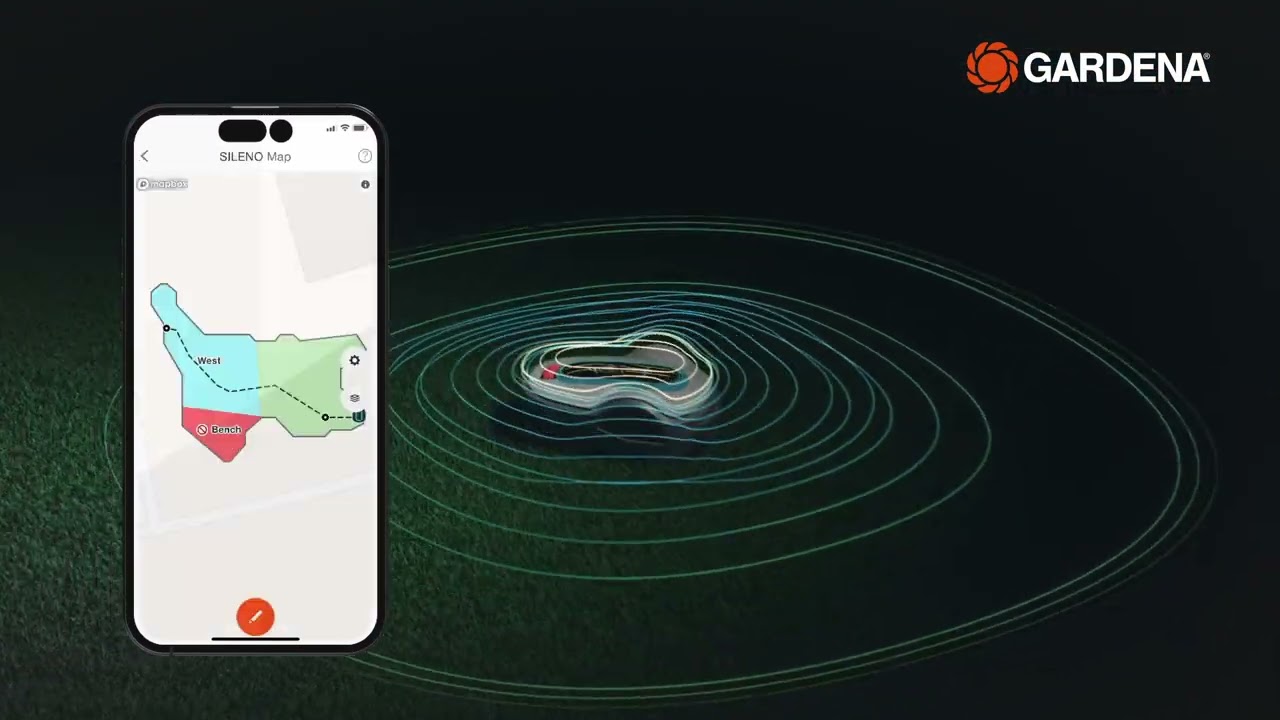CrashCourse
Today, in our final episode of Crash Course AI, we’re going to look towards the future. We’ve spent much of this series explaining how and why we don’t have the Artificial General Intelligence (or AGI) that we see in the movies like Bladerunner, Her, or Ex Machina. Siri frequently doesn’t understand us, we probably shouldn’t sleep in our self-driving cars, and those recommended videos on YouTube and Netflix often aren’t what we really want to watch next. So let’s talk about what we do know, how we got here, and where we think it’s all headed. Thanks so much everyone for watching!
Don’t forget to subscribe to Jabril’s channel here!
http://youtube.com/c/jabrils
And you can find some more free recourses to learn about AI below!
https://course.fast.ai/
https://www.coursera.org/learn/ai-for-everyone
https://www.coursera.org/learn/machine-learning
https://pytorch.org/tutorials/beginner/deep_learning_60min_blitz.html
https://www.kaggle.com/learn/overview
https://www.kaggle.com/competitions?sortBy=grouped&group=general&page=1&pageSize=20&category=gettingStarted
Crash Course AI is produced in association with PBS Digital Studios:
https://www.youtube.com/pbsdigitalstudios
Crash Course is on Patreon! You can support us directly by signing up at http://www.patreon.com/crashcourse
Thanks to the following patrons for their generous monthly contributions that help keep Crash Course free for everyone forever:
Eric Prestemon, Sam Buck, Mark Brouwer, Efrain R. Pedroza, Matthew Curls, Indika Siriwardena, Avi Yashchin, Timothy J Kwist, Brian Thomas Gossett, Haixiang N/A Liu, Jonathan Zbikowski, Siobhan Sabino, Jennifer Killen, Nathan Catchings, Brandon Westmoreland, dorsey, Kenneth F Penttinen, Trevin Beattie, Erika & Alexa Saur, Justin Zingsheim, Jessica Wode, Tom Trval, Jason Saslow, Nathan Taylor, Khaled El Shalakany, SR Foxley, Yasenia Cruz, Eric Koslow, Caleb Weeks, Tim Curwick, DAVID NOE, Shawn Arnold, William McGraw, Andrei Krishkevich, Rachel Bright, Jirat, Ian Dundore
Want to find Crash Course elsewhere on the internet?
Facebook – http://www.facebook.com/YouTubeCrashCourse
Twitter – http://www.twitter.com/TheCrashCourse
Tumblr – http://thecrashcourse.tumblr.com
Support Crash Course on Patreon: http://patreon.com/crashcourse
CC Kids: http://www.youtube.com/crashcoursekids
#CrashCourse #MachineLearning #ArtificialIntelligence
Source




Kinda related: Andrew Yang is the ONLY candidate I've seen running that not only talks about this tuff, he understands the potential, inevitability, and risks of it.
My vision about: IT=Ignorant Technology & AI=Absurd Ignorance …
Having 40 years experience on computers and IT ….
These activities are called S C A M S … Societies Customers Abnormal Manipulation Systems ….
Artificial = Fake Correct?
Virtual? Fake or a dream?
Thanks, Jabril!
No! The last video!
57k views?! WTF
super CHiill
Process automation to hyper automation
In 2020, we would begin to see the rise of hyper automation, which is the meeting point of intelligence driven by AI and ML with autonomy driven by robotic and cognitive process automation. Hyper automation would help support dynamic and complex business processes including loan processing, insurance claims, warehouse dispatch and others. This would provide the unique advantage of mimicking user actions on terminals like carrying out transactions and generating dynamic content contextually to deliver on speed, accuracy, reliability and reduced costs.
I don’t think Elon musk liked this video
With great power comes great possibility
Idk man I am not very stroked about the changes in the next decade.
Maybe we can implement a UBI??!!?
The future doesnt seem as cool as we think
You should see how china use AI in scary way to force their children to study hard.
Channel : Wall street journal
Future of Artificial Intelligence? Watch the "Second Renaissance" episode of the Animatrix and see mankind's enslavement to machines. That's a taste of our future, a preview of things to come if we dont treat AI with equal respect.
Trudeau has got to go
7
Follow me
Thanks a lot for this series!
I'm imagining exciting megamachines mining, like in Avatar.
I'd love to see that. Waw.
Hi ,
If I am interested in this field , How Can I start it ?
Keep in mind predicting the future is a tricky business you can't take into account undiscovered discoveries that have yet to be discovered, to increase or accelerate the discovery of more advanced artificial intelligence.
The unibomber said that technology leads to oppression. The reason given for this is that the newest technology is first accessed by the wealthy ruling class, and that they monopolize technology to rule the oppressed masses.
Of course if this were true you would find that only the ruling class and the wealthy would have access to the most dangerous technology, and that barriers would be placed so that common people could not weaponize technology in a manner that the ruling class or wealthy do.
Why are you so chill
I'm in a union, I work logistics, and it is in our contract that I cannot be replaced by technology. Don't worry about me.
Thank you for the course, and best of luck in the future!
Can we get an AI to figure out how much hand waving to do according to the tone and cadence of the speech?
I've learned english with your videos, thanks Jabril.
@ 7:11